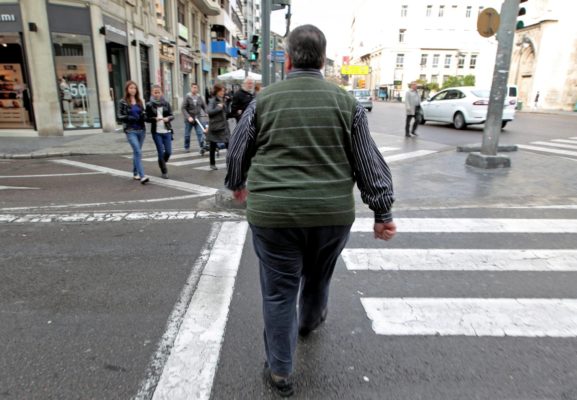 The obesity crisis is not only prevalent in the US or the UK, it is dramatically increasing in Spain too.
The obesity crisis is not only prevalent in the US or the UK, it is dramatically increasing in Spain too.
According to the World Health Organisation, in fact, children in Sweden are more likely to eat fish, olive oil and tomatoes than those in southern Europe. In Cyprus, Greece, Italy and Spain, nearly half of all 9-year old children are overweight or obese.
Sweets, junk food and sugary drinks have displaced the traditional diet based on fruit and vegetables, fish and olive oil, said Dr Joao Breda, head of the WHO European office for prevention and control of noncommunicable diseases.
“The Mediterranean diet for the children in these countries is gone,” he said at the European Congress on Obesity in Vienna. “There is no Mediterranean diet any more. Those who are close to the Mediterranean diet are the Swedish kids. The Mediterranean diet is gone and we need to recover it.”
Children in southern Europe are eating few fruit and vegetables and drinking a lot of sugary colas and other sweet beverages, said Breda. They snack. They eat sweets. They consume too much salt, sugar and fat in their food. And they hardly move. “Physical inactivity is one of the issues that is more significant in the southern European countries,” he said. “A man in Crete in the 60s would need 3,500 calories because he was going up and down the mountain.”

Huge knock-on effect on the economy
This is not only an aesthetic problem either. It could have enormous repercussions for individuals’ health and longevity, and could represent costs of €3 billion for the country’s health system.
The obesity epidemic has been on the rise for years here in Spain, with cases nearly tripling since 1975, according to the World Health Organization (WHO). And the outlook for the future is equally bleak in a country that has been famed for the positive effects of its supposedly Mediterranean diet.
80% of men and 55% of women in Spain will be overweight by 2030
An investigation by the Mar de Barcelona hospital has found that 80% of men and 55% of women will be overweight by 2030. If the current trend continues, within 11 years more than 27 million people in Spain will be overweight.
Less sleep can contribute to childhood and adult obesity
There are studies that have researched the link between having less than 8 hours sleep and obesity. In Spain this is a severe problem, since people go to sleep late and get up early. A recently published book, Obesity, in which more than 30 international researchers collaborated, affirms that sleeping less upsets the hormonal balance that regulates appetite regardless of age. Lack of sleep in children will cause the same tendency to gain weight as in adults.
A study recently published in the International Journal of Obesity has corroborated this information: those children who sleep less than 7 hours a day show a greater increase in weight than those who sleep at least 8 hours daily. The study also mentions that the situation is worse in Spain where children get barely 8 hours per day on average, insufficient in itself, and also tend to skip important meals like breakfast, instead filling up throughout the day on foods with a high salt, fat and sugar content.
 Serious concerns for the future
Serious concerns for the future
Researchers at the Barcelona hospital revised all of the scientific literature published in Spain on the prevalence of obesity and excess weight between 1987 and 2014 in order to come up with an accurate picture of the state of the country’s residents. The results revealed an “alarming future.”
“There are currently 25 million people with excess weight, three million more than a decade ago,” explains Dr Albert Goday, one of the other authors of the study. “In a conservative scenario, if this trend continues, there will be another three million more – 16% more cases – by 2030.”
If things continue as they are in Spain, a large percentage of the population will be at a higher risk of suffering a number of diseases, including diabetes, hypertension, stroke, cancer and other cardiovascular conditions.
Experts argue that any weight loss, no matter how small, reduces the risk of contracting one of the associated illnesses. “We aren’t going to find the key to this or a vaccination overnight,” Goday adds. “But any minor intervention will help to reduce the risk. You might think that you have made a huge effort and have only lost four kilos when you need to lose many more, but you must bear in mind that those four kilos are already reducing the risk.”

At Medcare, prevention is considered to be as important as curative medicine. This is why Medcare offers all patients a General Health Check, a basic diabetes check (from just 25 euros) or a cholesterol check. These will detect any medical issues and the doctor can prescribe a treatment plan.
At Medcare, you can also take advantage of the nutritional and advice and weight management provided by the nurse.
Here you can see all the information about the Health Checks.
To make an appointment at Medcare, call 966 860 258 or email doctors@medcarespain.com.
If you find this article interesting, please sign up to receive our newsletters for medical, dental and beauty news, information and promotions.
Information correct as of January 2019

